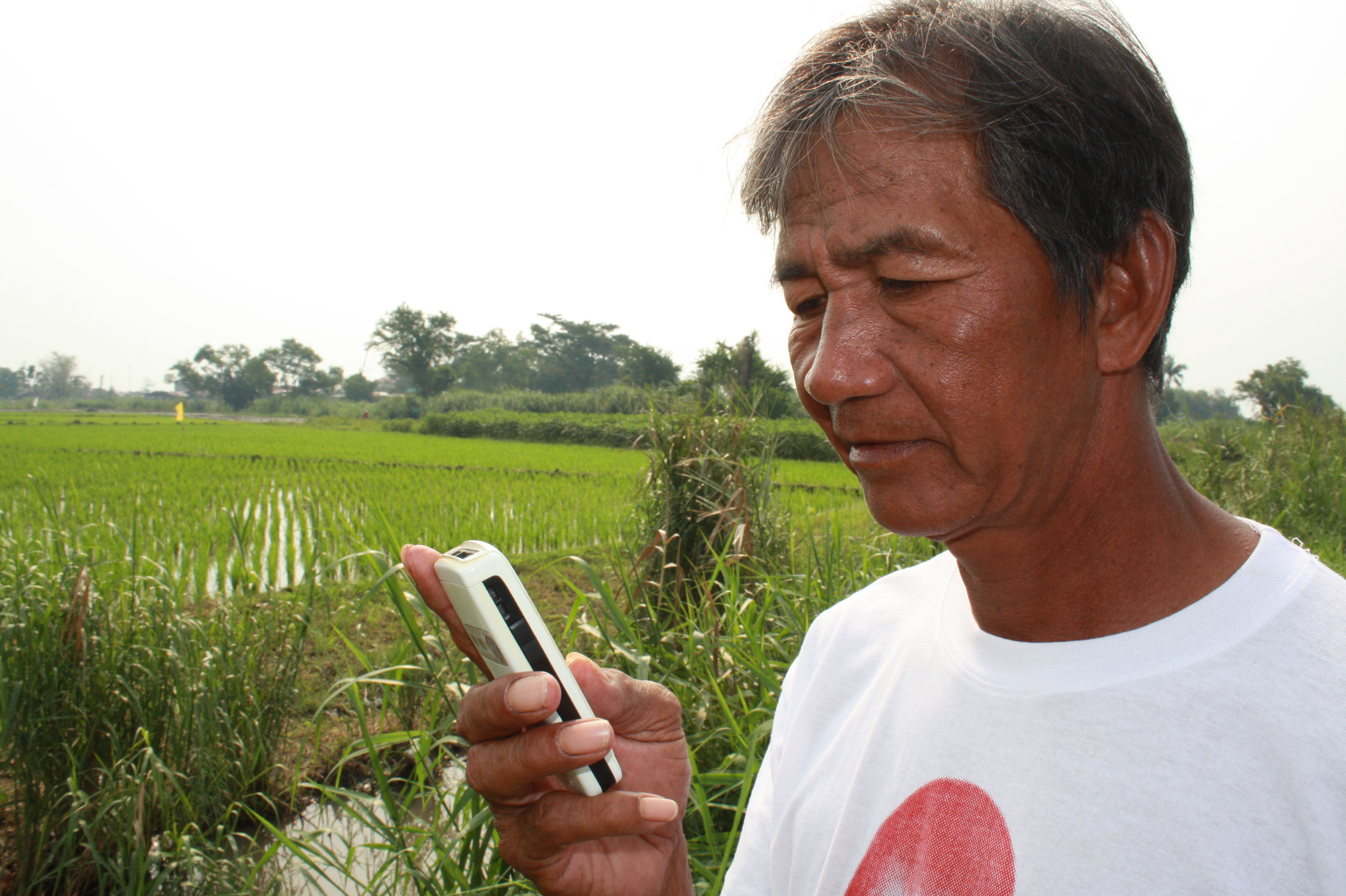From next month, however, such concerns will be easily overcome as thousands of farmers across the Philippines will be able to receive nutrient management advice via their mobile phones.
"Farmers' fields are small and highly variable. As a result, the best practice for one field can be quite different to the best practice for another field," Roland Buresh, principal scientist for nutrient and crop management at the International Rice Research Institute (IRRI), said.
"We want to give farmers site-specific recommendations. Something tailored to their individual fields," he told IRIN.
Sponsored by the Department of Agriculture, IRRI, and a local mobile-phone operator, the computer-based Nutrient Manager decision tool will allow farmers to respond to simple voice-activated questions about their rice crops by keying in the conditions of their field.
In less than 10 minutes, the farmer will receive an automated text reply of recommendations on the types and amounts of fertilizer needed, as well as timings to maximize paddy output.
| More on texting |
Precision agriculture
Precision agriculture aims to better match fertilizer applications with the spatial and temporal needs of the crop to maximize output and nutrient value.
In many countries where agriculture is highly mechanized, sophisticated technologies often based on crop sensors, global positioning systems, or remote sensing are continually being developed and used to implement precision agriculture.
But in the Philippines where farms are typically small - often no more than a few hectares - such technology is not always viable.
"In this case, the farmer is the 'sensor'. In this way, we can reach even the smallest farmer," Buresh said. And in a country described as the text messaging capital of the world, with an estimated one billion text messages sent daily, he might be right.
"Filipinos use their cell phones a lot so this is just the kind of technology we should be using. I'm sure it would work well elsewhere in Asia," said Pam Mappala of the Department of Agriculture's Agricultural Training Institute.
Despite a deluge of information available on nutrient management, ensuring farmers have access to it remains problematic, she said. CDs or printed material can prove bulky, while placing information on the internet is no help to farmers who lack access to a computer.
To make such information tools viable, they must be readily available to farmers and workers in the field, Mappala stressed.
According to the UN Food and Agricultural Organization (FAO), the Philippines is one of the largest rice producers in the world but the archipelago nation of close to 100 million people is also one of the world's leading rice importers.
Filipinos are among the largest consumers of rice - estimated to eat around 130kg per person per year, the FAO says.
ds/m
This article was produced by IRIN News while it was part of the United Nations Office for the Coordination of Humanitarian Affairs. Please send queries on copyright or liability to the UN. For more information: https://shop.un.org/rights-permissions





